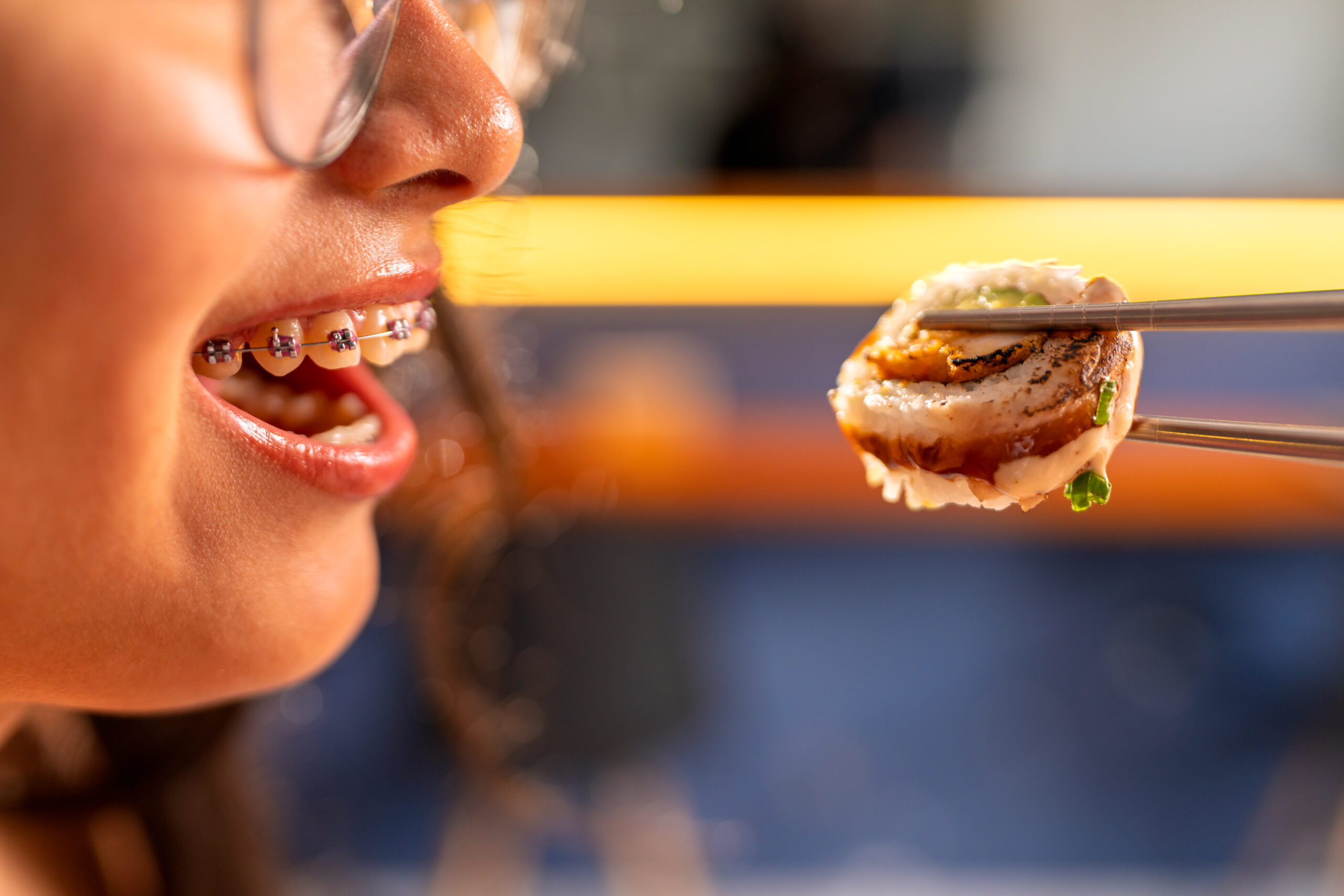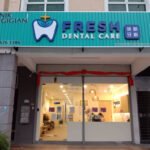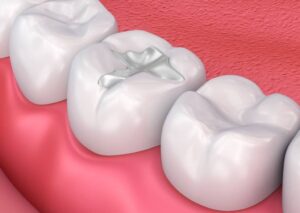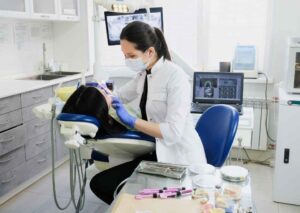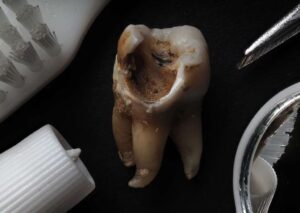If you’ve just gotten braces from a dental clinic, one of the first things you’ll need to change is your eating habits. Certain foods can damage your braces, delay treatment progress, or even cause pain. The good news? You don’t have to give up your favourite dishes entirely – you just need to know which ones to avoid and how to eat smart.
Orthodontic treatment is an investment, and part of protecting that investment is making sure your braces stay intact. Damaged brackets or wires mean more clinic visits, longer treatment time, and sometimes additional costs.
Let’s start by breaking down the types of food to avoid and why they can be problematic for people with braces.
Foods to Avoid With Braces
Braces are made up of brackets, wires, and bands that work together to gradually align your teeth. Unfortunately, certain types of food can damage these components. Here’s what to look out for:
Hard or Crunchy Foods
Hard or crunchy textures can put too much pressure on your brackets and wires. A single bite into something like a crusty roti canai edge or fried keropok can snap a wire or pop off a bracket.
Common culprits include:
- Hard biscuits and crackers
- Fried foods with crispy edges
- Roasted nuts or seeds
- Ice cubes (yes, some people chew on them!)
- Chicken Bones
Chewy or Sticky Foods
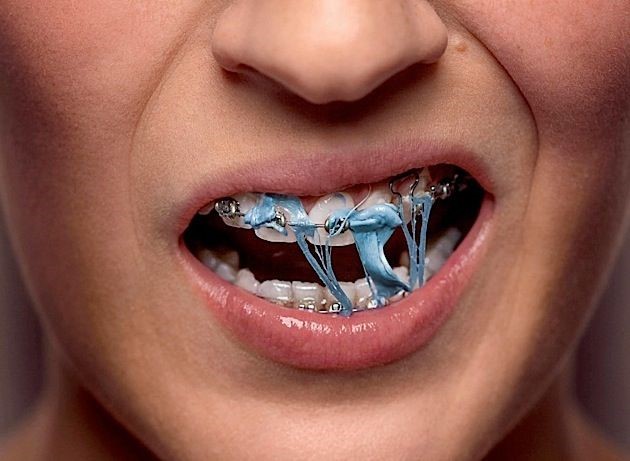
Sticky foods are especially dangerous because they can pull at your brackets and linger on your teeth, increasing the risk of plaque buildup.
This includes:
- Traditional sticky desserts like dodol or kuih bakul
- Chewy candies and toffees
- Certain types of rice cakes or mochi
These foods can also wedge themselves between your wires and teeth, making it harder to clean and increasing the risk of cavities.
Sugary Foods
Braces already make cleaning your teeth more challenging. Add sugar into the mix, and you’ve got a higher risk of tooth decay, gum disease, and white spots around your brackets.
Local sweets like kuih lapis, sirap bandung, or sweetened condensed milk in your teh tarik can contribute to this problem. You don’t need to cut them out completely, but moderation and proper cleaning afterward are essential.
Tough Meats
Certain beef and mutton dishes can be tough and fibrous, especially when dry-cooked or grilled (like daging bakar or kambing panggang). Chewing on these with braces can pull on your wires or leave you in pain.
If you want to enjoy meat, choose braised, stewed, or slow-cooked versions like rendang or curry – where the protein breaks apart easily and doesn’t strain your bite.
During the First Week
The first week with braces is often the most uncomfortable. Your teeth and gums may feel sore, and even soft food can feel difficult to chew.
During this period:
- Stick with mashed or blended food like bubur ayam or steamed egg custard
- Avoid anything that requires biting or tearing
- Cold foods like yogurt or chilled soy milk can help soothe soreness
Safe Foods and Eating Guidelines for New Braces
When you first get braces, your teeth, cheeks, and gums go through a period of adjustment. Eating the wrong types of food during this time can not only increase discomfort but also damage your brackets. But don’t worry — you’ve got plenty of delicious, braces-friendly options that are both safe and satisfying.
Embrace Soft Food for Braces
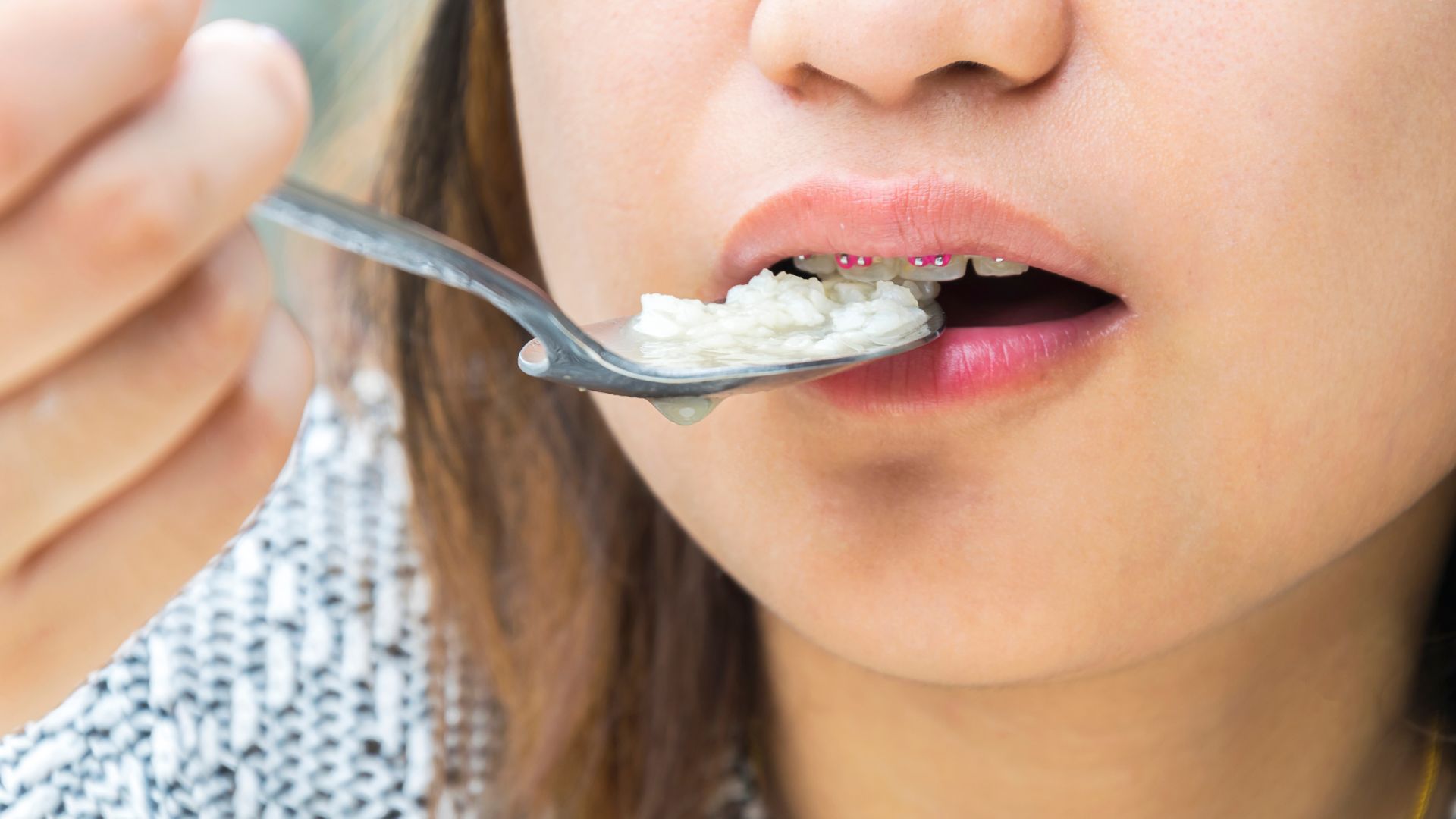
Soft foods aren’t just easier on sore teeth — they’re also less likely to bend wires or dislodge brackets. Go for dishes that require minimal chewing or can be swallowed easily.
Some great local options include:
- Chicken porridge (bubur ayam) – comforting, savoury, and easy to digest
- Lontong – soft rice cakes soaked in a flavourful coconut-based gravy
- Steamed tofu with soy sauce – high in protein, soft in texture
These meals won’t irritate your mouth and can help you stay nourished during your adjustment period.
Eating Slowly Makes a Big Difference
One of the biggest mistakes people make with new braces is eating too fast. Slow, deliberate chewing helps you get used to the pressure braces apply to your teeth. It also reduces the risk of biting down the wrong way and damaging your braces.
Cut your food into smaller, bite-sized pieces before eating. Use your molars (the back teeth) to chew rather than your front teeth, which are more sensitive during the early stages of treatment.
Drink More Water During and After Meals
Water plays an important role in keeping your braces clean. After each meal, drink plenty of water to help wash away food debris trapped in brackets and wires. This small habit reduces your risk of plaque buildup, especially when you don’t have time to brush immediately after eating.
You can also rinse your mouth with plain water if brushing isn’t an option.
Care and Maintenance of Braces
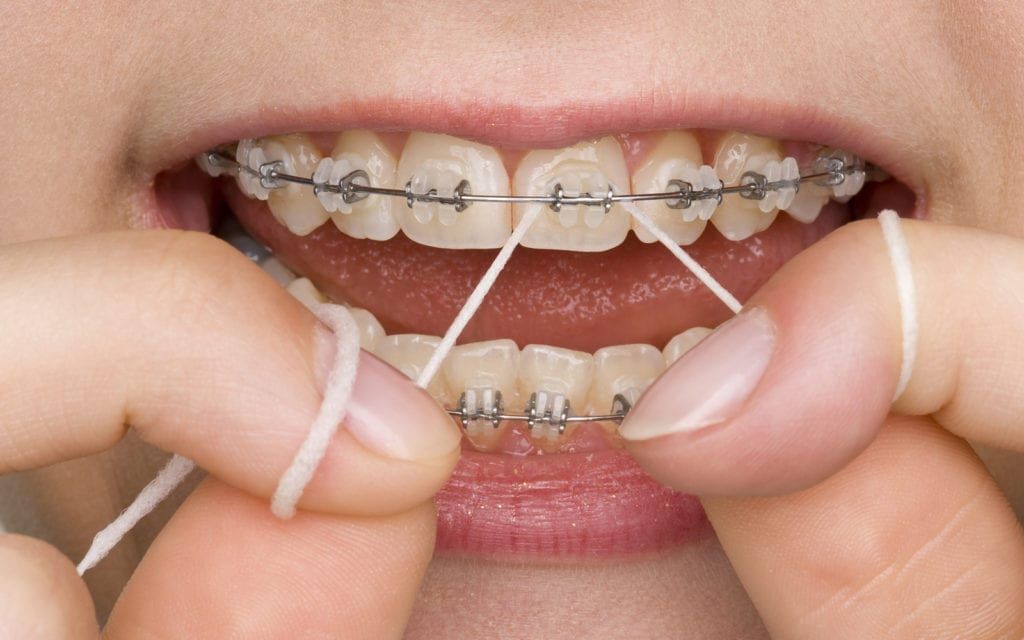
Keeping your braces in good condition isn’t just about protecting the hardware — it’s essential for keeping your treatment on track. Damaged wires, broken brackets, or poor hygiene can lead to longer treatment times, more appointments, and extra costs. Here’s how to care for your braces daily.
Brushing and Flossing With Braces
Brushing with braces takes a bit more time and attention. Food easily gets stuck around the brackets and wires, which increases your risk of plaque buildup and tooth decay.
Use a soft-bristled toothbrush and aim to brush your teeth after every meal. Angle the brush to clean above and below the brackets. Take your time — at least two minutes is ideal.
For flossing, traditional string floss can be tricky. Instead, try using an orthodontic flosser or a water flosser, which can effectively clean between your teeth and around the braces without tugging at wires.
Avoid Bad Habits That Damage Braces
If you have a habit of chewing pens, biting your nails, or using your teeth to open packaging — now is the time to stop. These habits can snap wires, crack brackets, or shift your teeth unexpectedly.
Also, avoid chewing on ice or biting into very hard foods. Even if it’s on the “safe” list, how you eat matters just as much as what you eat. Cut your food into smaller pieces and chew gently using your back teeth.
Dealing With Irritation and Discomfort
It’s normal to feel some irritation from your braces, especially during the first few days or after adjustments. Orthodontic wax can be placed over any brackets or wires that rub against your cheeks or lips. This helps prevent ulcers and sore spots.
Mouth rinses with warm salt water can also soothe irritated gums and help your mouth adjust more comfortably.
Regular Check-ups Are Key
Routine appointments are crucial to track your progress and make necessary adjustments. Your orthodontist will tighten wires, replace bands, and ensure everything is moving according to plan.
Missing too many appointments or delaying visits may prolong your treatment time. If something breaks — don’t wait. Call your dental clinic in Kepong for advice or to schedule a repair.
Frequently Asked Questions
Can I eat spicy food with braces?
Yes, but with caution. Spicy foods won’t damage your braces, but they can irritate your gums and mouth, especially during the first few days after getting braces or after an adjustment. Go easy on sambal or chili-based sauces until you feel comfortable.
Are there any fruits I should avoid with braces?
Whole apples, uncut guava, or any hard fruit that needs to be bitten into directly should be avoided. Instead, cut them into small pieces or opt for softer alternatives like bananas, papaya, or applesauce.
Can I chew gum with braces?
Chewing gum is generally not recommended. It can get stuck in the brackets and wires, making cleaning difficult and increasing the risk of damage or tooth decay.
How long do I need to avoid hard and sticky foods?
For as long as you wear braces. Hard or sticky foods can bend wires or pop off brackets – even in the final months of treatment. Staying cautious throughout will help avoid unnecessary delays.
Can I eat fried food with braces?
In moderation, yes – as long as the food isn’t too crunchy or hard. Avoid fried chicken skin or crunchy fries. Instead, go for soft fried items like tender ayam goreng or battered fish that isn’t too crisp.
How do I clean my braces after eating?
Rinse your mouth immediately after meals to dislodge trapped food. Use an interdental brush or floss threader to clean between wires and teeth. Brushing after every meal is highly recommended to prevent plaque buildup.
Ready to Eat Without Worry? Let’s Get Your Braces Journey Started
Navigating food choices with braces doesn’t have to be stressful – not when you’ve got expert dental care to back you up. At Fresh Dental Care Kepong, we go beyond just fitting braces. Our team guides you through every step, including what to eat, how to clean your braces, and how to avoid costly damage from the wrong foods.
If you’re considering orthodontic treatment or need help adjusting your current routine, book a consultation with our friendly, experienced dentists today.
Send us a WhatsApp message directly through our website to schedule your appointment.

